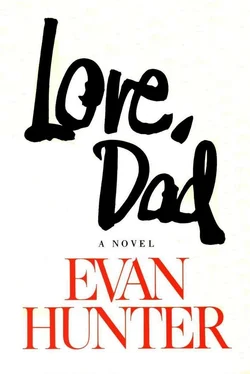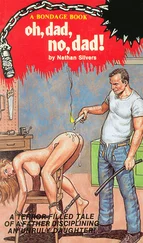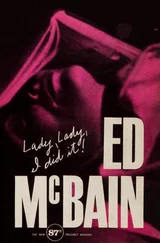Connie asked the bartender — one of Rutledge’s moonlighting policemen — for a vodka martini on the rocks, with a twist, please. Jamie asked for a Dewar’s and soda, figuring he’d stay with what he’d been drinking before he left the house, and fully intending to pace his alcoholic consumption. Someone lifted the arm from the record player, and several of the couples on the floor booed and hissed in mock outrage, but only until the rhythms of Herb Alpert’s “A Taste of Honey” oozed from the speakers. Men pulled women close. Cheeks caressed cheeks. Someone discreetly dimmed the rheostated lights.
The talk at most Rutledge parties usually centered on the latest Broadway hit, Hollywood extravaganza or best-selling novel (John Updike’s Couples had dominated the conversation all through May and part of June, presumably because it dealt with the sexual acrobatics of a band of exurbanites not unlike those who lived in Rutledge) with every now and then a question of deep philosophical concern surfacing to be discussed in the most sophomoric terms, despite the fact that many of Rutledge’s residents were accomplished and educated men and women. Tonight, though, as Jamie and Connie wandered drinks in hand through the crowd of celebrants waiting for the countdown that would take them into the bright new year, he thought he detected a somewhat reflective note to the chatter that wafted on the air in competition with the music. It was, after all, New Year’s Eve, and a certain amount of ruminating over the past year was to be expected; but as he drifted through the crowd, catching snatches of conversations here and there, he felt as though he were awkwardly trapped in an updated John Dos Passos novel, the headline stories of 1968 threading through the talk like an insistent leitmotif.
It had, everyone seemed to agree, been one hell of a year.
Frank Lipscombe, who was Judy Lipscombe’s father and a psychiatrist of some note in Manhattan’s Shrink City along Ninety-sixth Street, maintained while stroking his gray Freudian beard that the year had truly started in April with the assassination of Martin Luther King, Jr., an event that could be bracketed in terms of proximity with the subsequent June murder of Robert Kennedy. Frank was generally full of shit, Jamie thought, constantly handing out unsolicited psychiatric advice on the care and feeding of adolescents, and once telling him that a father should never hug or kiss his own daughter lest Electra run wild and incest stain the family sheets. The end result of such a restrictive paternal policy had been Judy Lipscombe, whom Lissie succinctly described as “a bit slutty.” But he seemed to be making sense about the tone of violence set by the twin murders so soon after the traumatic death of President John Kennedy less than five years earlier, and it was his belief that the Chicago police at the Democratic National Convention in August were merely reacting in a way that had somehow become as American as apple pie, flailing out with billy clubs at antiwar demonstrators in much the same way that James Earl Ray and Sirhan Sirhan had exploded against their innocent victims.
In a largely Republican town, the guests tonight were for the most part Democrats, and their dismay over the election of Richard Nixon in November was still keenly felt a month and more after the event. There were those who insisted that if Humphrey had simply walked out of the convention, refusing to conduct business as usual while kids were having their heads broken in the streets and the relentless television cameras kept cutting back and forth from the convention-hall floor to the blue-shirted, blue-helmeted cops firing Mace and tear gas, he might have swung the election. There were others who felt nothing would have worked for the Democrats, not with a nation believing, perhaps rightly, that the Vietnam war was Lyndon Johnson’s toy, and despite his having bowed out of the presidential race in April with the famous lines, “I shall not seek, and I will not accept, the nomination of my party...”
“He waited too damn long to stop the bombing,” Jeff Landers said. He was Sally Landers’s father, an advertising man who specialized in Broadway shows, his agency handling the ads for perhaps 60 percent of all the plays and musicals that opened in New York. His daughter’s boyfriend had already registered for the draft, and he was certain the boy would be called up early next year, a prospect he anticipated with mixed feelings, some of which might have provided the fodder for another Electral discourse from Dr. Frank Lipscombe, the noted psychiatrist and nonhugger. “A week before the damn election! Everybody in America recognized the timing for just what it was — a ploy to swing the vote to his pal Hubert.”
Alistair York, the town’s network sportscaster, bored with all this hard-news shit, asked Connie to dance, much to the annoyance of his mistress, a dark-eyed redhead who’d earlier been talking to Reynolds McGruder, and who was now drinking a Scotch and soda almost as dark as her loamish eyes. As Alistair led Connie onto the floor, Jamie noticed that his hand was resting on the naked small of her back, the fingers widespread somewhat familiarly close to the base of her spine and the rounded buttocks beneath the shimmering gown. Jamie looked at his watch. It was close to eleven o’clock. He was about to ask the redhead to dance when Marvin Klein, Rusty’s father and one of a dozen or more Jews in Rutledge’s tight inner circle, beat him to it. The redhead melted into Marvin’s arms, flashing a dark look at her sportscaster lover, who was dancing cheek-to-cheek with Connie across the room, near the Blairs’ glass-encased collection of antique medals.
“I’d have done the same thing Bucher did,” Mike Randolph said. He was Kimmie Randolph’s father, a Wall Street stockbroker with perhaps the longest commute of anyone in Rutledge; his daughter had inherited from him her blue eyes and blond hair and an unfortunate eagle’s beak. “What was he supposed to do? Open fire and start another damn war in Korea?”
“Ah’m talking about the con fess ion,” Melanie Kreuger said. She was Scarlett’s mother, a woman of forty-two who, presumably because of her Atlanta upbringing, affected all the cutsie-poo mannerisms of a southern belle; she was wearing tonight a lavender confection that might have been more appropriate at a Homecoming Queen Cotillion than at a party here in Rutledge, where the women generally looked sleek and sophisticated. Her mother had named her ten years before reading Gone With the Wind. Melanie, later delighted to learn that her name had been used for one of the major characters in a best seller, paid homage to the author by naming her own daughter Scarlett. Her husband, Larry, worked as a translator at the U.N. He rarely said very much at parties, apparently too burdened was he with all the woes of the world. “Bucher said he had no excuse what ever fuh his crim’nal act,” Melanie said. “He told the whole world he was spyin’ on the No’th Koreans.”
“Come dance with me,” Diana Blair whispered behind him, and Jamie put his drink down on the coffee table, leaning over the back of the sofa and incidentally the back of a man named Byron Lewis, who was Jimmy Lewis’s father. Byron published photographic books under his own imprint and a distribution setup; he had approached Jamie only last month about getting together on a project. He now said, “Hey, hi, Jamie, nice to see you,” and then turned back to Alistair York’s redhead, who had abandoned Marvin Klein after their first dance, and who now denounced — with an intensity as flaming as her hair, and with a surprising Middle-European accent — the Russian invasion of Czechoslovakia that August. Someone liked the Herb Alpert record; as Jamie led Diana onto the floor, “A Taste of Honey” started again.
Читать дальше












